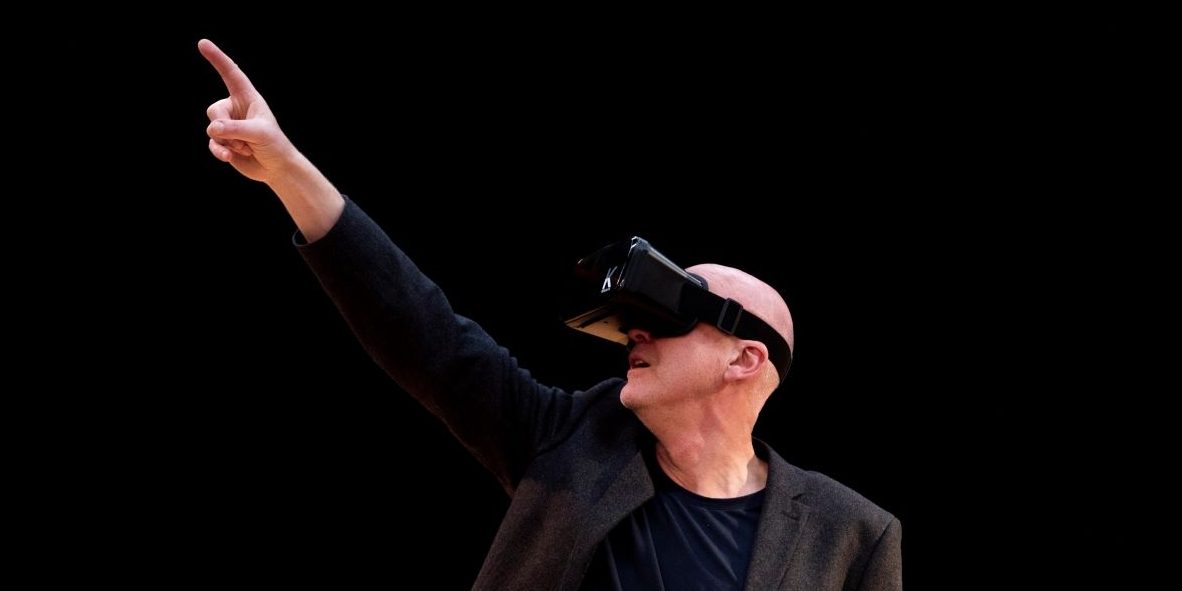This stunning short piece by Tim Crouch is reflection on the nature of theatre and the shared values that bring performers and audience together. It’s about whether live theatre has a future in the digital/social media age. It’s about what we the audience expect when we sit down in a theatre auditorium. I know that this all sounds a bit dry and formal but the performance is anything but …. I don’t often laugh out loud in the theatre but this had me in stitches. It is very funny and occasionally very disturbing. It overflows with fascinating ideas. I loved it.
Tim Crouch comes on stage wearing a Virtual Reality headset and we soon realise that what he is “seeing” and describing is a performance of King Lear in which he had been playing the role of The Fool. He has just come off stage and he soon begins to reflect both on the cruelty of the play but also on the absurdity of the artifice that constitutes the deal between the actors and the audience. But before he gets to that material, he does an analysis of who is in the audience – and why – that is a comic tour de force And of course, as he describes the imaginary Lear audience, we can’t be sure that he isn’t describing us – does he actually know which of us got cheap tickets? Does he know who has sneaked down from the cheap seats to sit in the front row? Does he know I had two drinks before the show and am feeling drowsy?
Later he talks about the nature of the action in Shakespeare’s play – both about his use of horrific violence and about the way the he can persuade us to accept ‘make-believe’ as a means to a dramatic end. The title of the piece – Truth’s a dog that must to kennel – is a line spoken by The Fool in Act 1 when he has hinted at the real motives of Lear’s vindictive daughters and the old king threatens to whip him. The audience watching King Lear know that The Fool is being threatened for telling the truth.
But Crouch has another persona – that of a stand-up comedian – and he alternates between his VR self and his comedian self. He delivers some comic monologues that are very funny but never quite get to the punchline – or rather get to off-kilter punchlines that are very disturbing. One of these sections develops into an extraordinary rant about a “reality/talent” show that is truly shocking – except that we can’t be sure that in the eternal quest to titillate or shock the audience there may not be a TV show like this before too long. And how does the plot-generated ‘unreal’ violence in King Lear stack up against what happens in “reality TV” shows?
Crouch holds his audience in a tight grip. Apart from the changing storyline, he has a range of ways of delivering his messages – sometimes wearing the headset, sometimes using a hand held microphone, sometimes just talking quietly direct to the audience. No scenery is needed – and the upstairs hall at BAC is just equipped with a standard set of banked seating.
It probably helps to know a little about the plot of King Lear – and to have an interest in theatre and its battle with “the flat screen on the living room wall”. But for anyone who cares about live performance, and is willing to have their assumptions about theatre challenged, this piece is not to be missed!

